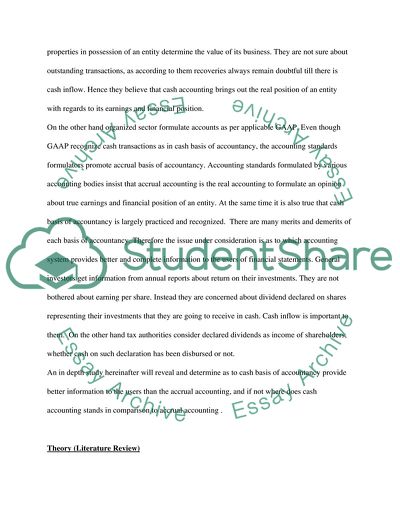Cite this document
(Cash Accounting vs. Accounting Research Paper Example | Topics and Well Written Essays - 4000 words, n.d.)
Cash Accounting vs. Accounting Research Paper Example | Topics and Well Written Essays - 4000 words. Retrieved from https://studentshare.org/finance-accounting/1739714-cash-accounting-versus-accounting
Cash Accounting vs. Accounting Research Paper Example | Topics and Well Written Essays - 4000 words. Retrieved from https://studentshare.org/finance-accounting/1739714-cash-accounting-versus-accounting
(Cash Accounting Vs. Accounting Research Paper Example | Topics and Well Written Essays - 4000 Words)
Cash Accounting Vs. Accounting Research Paper Example | Topics and Well Written Essays - 4000 Words. https://studentshare.org/finance-accounting/1739714-cash-accounting-versus-accounting.
Cash Accounting Vs. Accounting Research Paper Example | Topics and Well Written Essays - 4000 Words. https://studentshare.org/finance-accounting/1739714-cash-accounting-versus-accounting.
“Cash Accounting Vs. Accounting Research Paper Example | Topics and Well Written Essays - 4000 Words”, n.d. https://studentshare.org/finance-accounting/1739714-cash-accounting-versus-accounting.


